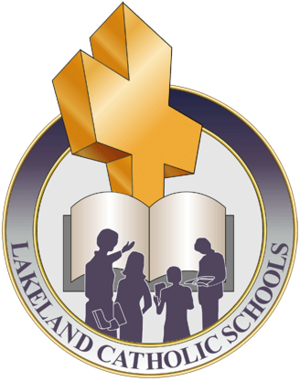Alberta Youth Search for Meaning
This Religious Studies program was written by the Catholic Religious Studies teachers in response to the needs of students in Alberta Catholic high schools today. The program “Alberta Youth Search for Meaning” is approved by the Bishops of Alberta and is in compliance with the teachings of the Catechism of the Catholic Church. The curriculum strives to engage students in the search for meaning through three major themes: belonging, believing and relating. The program further addresses the study of specific topics through four “windows of authenticity”: truth, goodness, the spiritual, and religious community.
The overall aim of the program is to assist young persons with the help of the gospel, to participate as Catholics in the shaping of our culture. Christ and Culture brings Canadian culture into conversation with Christ for young people. It explains the terms and concepts of such a conversation. How can such a conversation between the person of Christ and culture take place? What are the partners in the conversation? What are the ways that we converse? Why is such a conversation helpful? To explore this dialogue, Christ and Culture focuses on three key elements:
- the human being—the student who enters into the dialogue
- culture and the things that shape culture in Canada
- the person of Christ as he is present and active among us and in us today in the power of the Holy Spirit.
Note: The Religious Education Locally Developed Courses (Religious Education 15, 25 and 35 and World Religions 35) are Adapted/Acquired from Edmonton Catholic Separate School District No. 7.
Religious Education 15
(Locally Developed Course 1724)
The principal aim of Christ and Culture is to assist students, with the help of the Gospel, to participate as Christians in the shaping of our culture. The program explores major cultural issues from a Christological perspective. Beginning with their own life experiences, students acquire a deeper and more systematic knowledge of themselves, Christ’s message, and the Church. Connections between the Church and contemporary culture are explored in terms of what it means to be a responsible adolescent developing as a member of a Catholic, Christian community while living within the context of a broader culture.
Religious Education 25
(Locally Developed Course 2724)
Jesus Christ: God’s Gift of Salvation invites students to deepen their relationship with Jesus through a study of Scripture. Students will explore the Jewish historical, religious, and cultural world into which the Messiah was born and the Old Testament covenant fulfilled. Using the Gospels as primary sources, the course explores Jesus' birth, early life, and ministry; his preaching of the Kingdom of God; his special teachings, particularly the parables; and his miracles. It then focuses on the scriptural accounts of his death and Resurrection, and the Ascension, and their central significance for the church's understanding of Jesus as the Christ, the Son of God.
Religious Education 35
(Locally Developed Course 3724)
In Search of the Good challenges students to understand themselves as moral persons called to discipleship by living the way of Christ. Through an examination of ethical theories, the revelation of Sacred Scripture, and the lived experience and teaching of the Catholic Church, the course invites students to mature as active participants in their faith. At the heart of catechesis is the human search for happiness as the completion of the superabundant love of God. The same tension which exists between the revelation of God’s love and the explorations of human reason are worked out in the areas of freedom, justice, human relations, ecology, reconciliation, life in community and political life.
Religions of the World 35
(Locally Developed Course 3450)
A study of the major religions of the world helps the student grasp the meaning of the words attributed to Edith Stein, “When you seek truth, you seek God, whether you know it or not.”Christ’s disciples are called to live out the Great Commandment to love God and one’s neighbor as oneself. In this course they will explore the Catholic faith in comparison with other faiths. Through their study they will learn the importance the Church assigns to ecumenism and inter-faith relations and develop an understanding of the tenets and practices that are core to many of the world’s faith practices.
As an academic discipline this course seeks to inform students about the other religion: as a religious endeavour, it seeks to bring students into an ever-deepening relationship with God and God’s creation. Religions of the World 35 provides students with new information, new understanding, and an opportunity to question their present systems of meaning with research, discussion, reflection and other activities as core for this course
